Photo Essay: Using CFSC to Meet the Needs of Today’s Students by Alan Thomson and Alex Mavrocordatos
Students’ growth and their rights to that growth are best served in a classroom where their needs and their experiences are at the centre of their learning. Today’s students need classrooms where they can be creative, imaginative and critical.
Towards that end, the Comenius mPPACT project uses participatory performing arts practices to foster innovative teaching throughout Europe. The project engages contemporary social realities in the classroom and targets primary and secondary teachers and their pupils.
The mPPACT’s programme is a blend of theatre for development and theatre/drama in education methods, including the participatory educational principles of Paolo Freire.
Teacher training courses begin with baseline data collection, including still images and tableaux depictions, as well as discussions of education as they experience it and as they wish it were.
The programme has trained teachers in Greece and Cyprus. A third course is running in the United Kingdom. A fourth iteration of the programme will run in Denmark in 2008 - 2009. These photos are drawn from the classes in Greece, Cyprus and the United Kingdom.
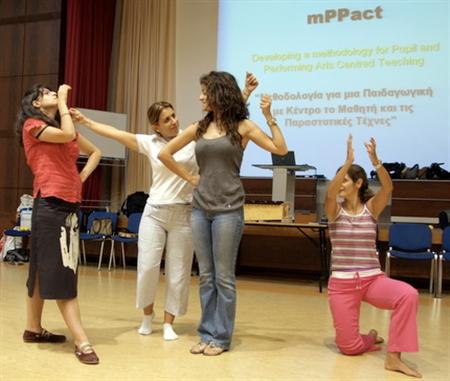
Training
Trainee teachers in Cyprus depict perceptions of their country, focusing on popular traditional dance and social cohesion
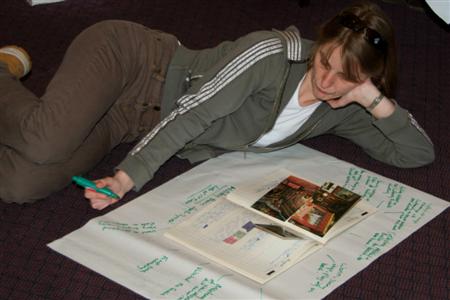
Teachers create life maps, identifying and mapping out key memories and turning points in their lives.
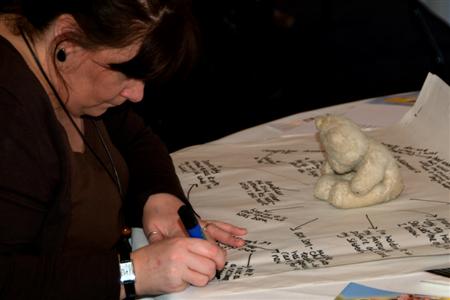
Some, like this woman, use artefacts from their childhood as a stimulus for the flow of memory.
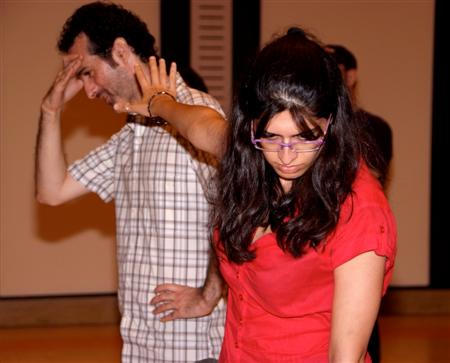
Having shared their stories in small groups, Students discover common elements and make them the basis for a five-minute devised performance—as in this play about rejection within a family.
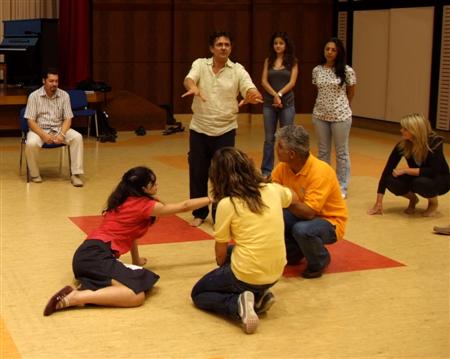
Once a play is performed, the plenary group discusses it—its meaning, context and social implications. The group may then present the play again, clarifying meaning or exploring further alternatives.
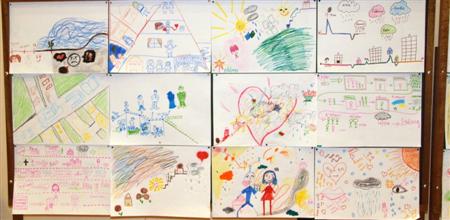
Implementation
The formal program lasts a week, including both theoretical and practical elements. The teachers then return to their schools and apply the mPPACT process with their pupils for some 10 weeks. These are some of their primary school pupils’ life maps from the U.K. programme.
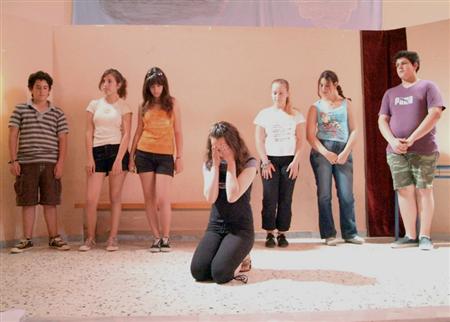
In this drama, secondary-school students in Cyprus explore issues of xenophobia and marginalization, issues affecting many communities and schools throughout Europe.
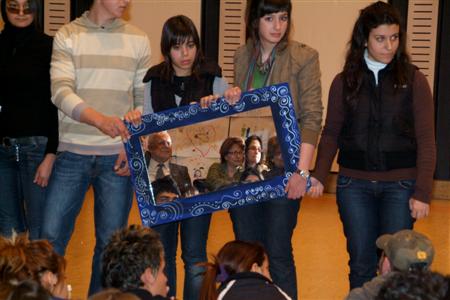
After 10 weeks, pupils and teachers come together to share their work and compare practice as well as the content of the work. In Cyprus, students invite members of the audience, including representatives from the Ministry of Education, to look at themselves and question what they see.
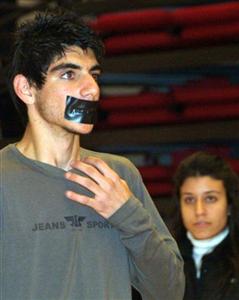
The play asserts that the system silences the voice of the youth.
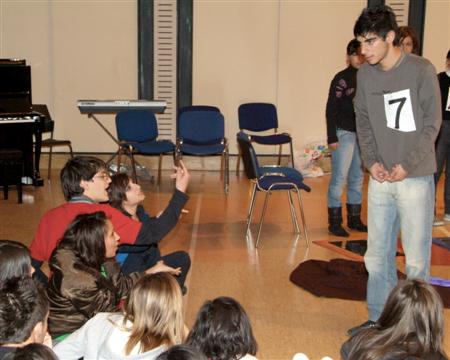
At the end of the play, actors engage the audience in debate.
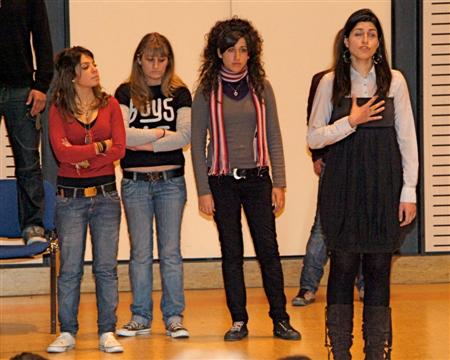
In this scene, from another group’s play, the teacher herself is involved in the student's drama. She shares her own feelings of being stifled by the education system. She says, "I wake up every morning wondering why I am doing this job"
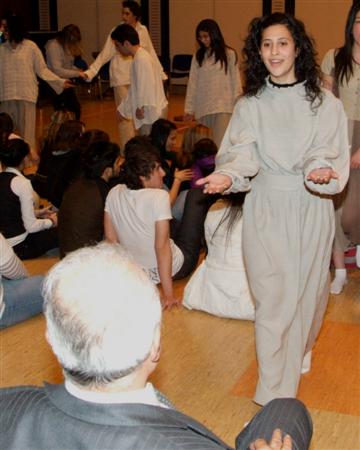
The drama tells the story of a student who becomes ill and collapses under the unrelenting pressure for academic success in Cyprus and Greece. A student actor asks the audience, which includes a senior education officer from the Ministry of Education, to consider the causes of the problem.
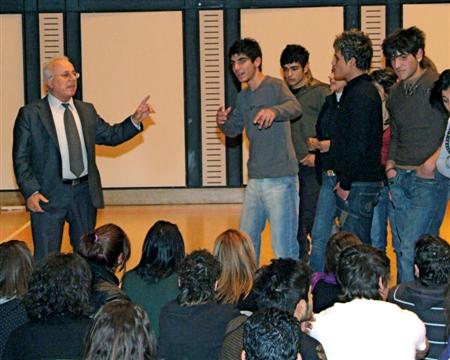
In response the education officer joins the actors on the floor asking, “Are things really as bad as that?” He describes an occasion when he went himself to a school to deal with a similar emergency.
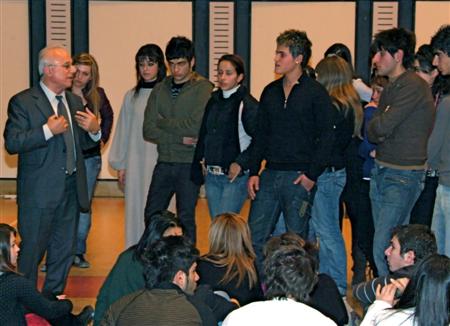
A student points out that the education officer was reacting to a crisis when he went to the school, where as the students are calling for proactive policy changes. The debate gets heated, and more students share their feelings of repression by the system.
As a result, the education department agreed to a meeting with the pupils during which the students will articulate their concerns and the need for change, and the education department will listen and respond. Teachers and mPPACT project staff will attend as spectators.
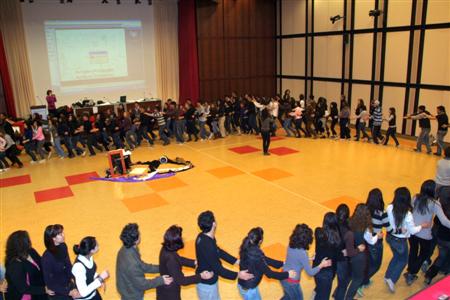
The courses end with a group-mapping participatory evaluation exercise that culminates in celebratory song and dance.
Pupils and teachers were energised by the powerful debates and the promise of a practical outcome. Pupils and teachers agreed that mPPACT offered a constructive classroom atmosphere where pupils worked with the teachers: a dialogical practice applicable not only to the humanities but also extending to math classes as well.
The Socrates programme (now the Lifelong Learning Programme) is run by the European Union’s Education, Audiovisual and Culture Executive Agency. Under this umbrella, the Comenius actions aim to enhance the quality of education, in particular by encouraging transnational cooperation between schools and contributing to staff development.
Partner institutions are:
| United Kingdom: | University of Winchester (project co-ordination and training) |
| Greece: | University of Peloponnese |
| Cyprus: | Cyprus College |
| Denmark: | Hoejskolen Performers House |
Photographs are by Alan Thomson (mPPACT partner, Aspire Trust, U.K.) and text by Alex Mavrocordatos (mPPACT co-ordinator, University of Winchester, U.K.)